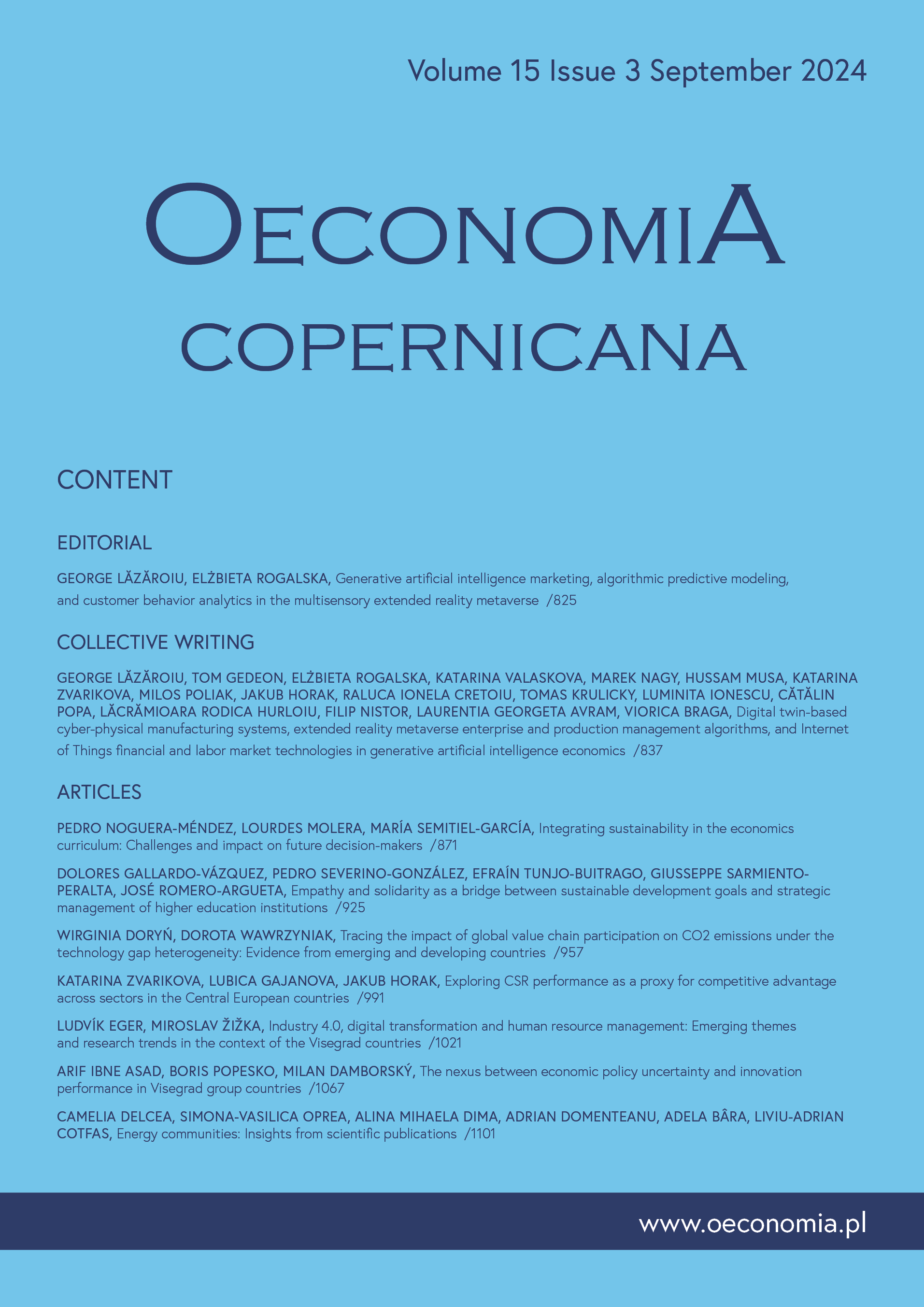Tracing the impact of global value chain participation on CO2
emissions under the technology gap heterogeneity: Evidence from
emerging and developing countries
Tracing the impact of global value chain participation on CO2
emissions under the technology gap heterogeneity: Evidence from
emerging and developing countries
Author(s): Wirginia Doryń, Dorota WawrzyniakSubject(s): Supranational / Global Economy, Energy and Environmental Studies
Published by: Instytut Badań Gospodarczych
Keywords: carbon dioxide emission; global value chain (GVC); technology gap; environmental Kuz- nets curve (EKC); emerging and developing countries;
Summary/Abstract: Research background: The issue of carbon dioxide (CO2) emissions, recognized as one of themajor drivers of environmental degradation, has attracted considerable attention from aca-demic researchers, policymakers, and professionals in relevant fields. Based on the existingresearch, countries’ pollution levels are shaped by a combination of factors, including theirparticipation in global value chains (GVCs) and degree of technological advancement. Still, relatively little is known about the mutual interdependence of these factors in determiningCO2 emissions, which creates the research gap that we address in this paper.Purpose of the article: The aim of this study is to broaden understanding of the impact ofGVC involvement on CO2 emissions in emerging and developing countries. We examine theimpact of GVC participation on CO2 emissions conditional on a country’s distance to theworld’s technological frontier. The rationale is that a country’s technological advancementmay underpin the environmental impact of GVC participation. We claim that the adoption oftechnology by less developed countries via GVCs is conditioned by their absorptive capacity,which is determined by their initial level of technological development.Methods: To investigate this issue, we employ the Arellano-Bond generalized method ofmoments (GMM) estimator and four patent-based technology gap indicators. The utilizeddata cover 90 emerging and developing countries.Findings & value added: Our study demonstrates that a country’s technological advancementis the key factor that conditions the acquisition of environmental benefits of GVC participa-tion. We find that countries with shorter distances to the world’s technological frontier enjoya decline in CO2 emissions as their GVC involvement increases. At the same time, countriesthat are further away from the technological leader may not be able to experience CO2 reduc-tion with increased GVC integration due to their inadequate absorptive capacity, which ham-pers the environmental benefits related to technology diffusion through GVCs.
Journal: Oeconomia Copernicana
- Issue Year: 15/2024
- Issue No: 3
- Page Range: 957-989
- Page Count: 33
- Language: English

